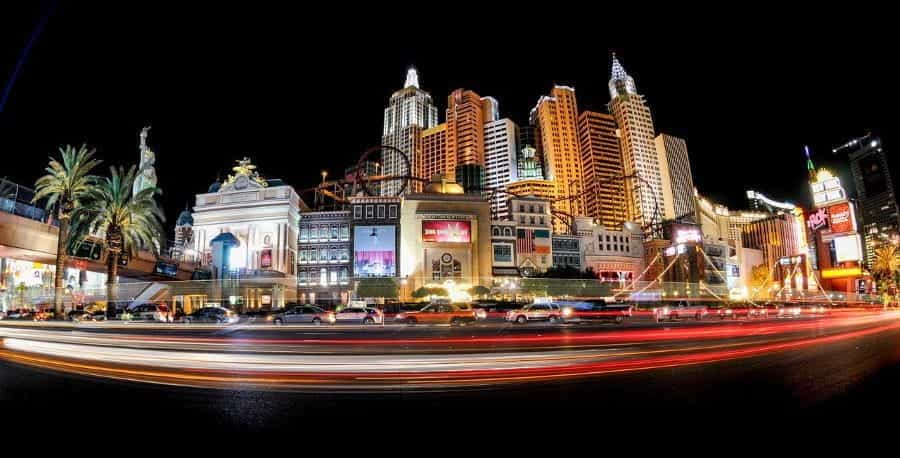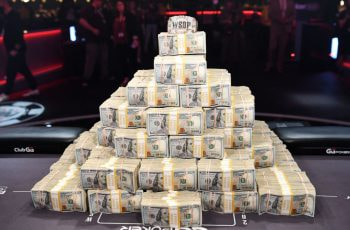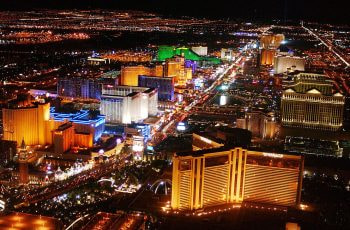Las Vegas Reopens Resorts & Casinos
Las Vegas’ coronavirus casino closures came to an end last Thursday, as thousands of visitors flocked to casinos to gamble for the first time in months. Hotel and casino operations remain under strict health and safety measures that include limiting gaming floor capacity and enforcing the use of masks.

Las Vegas casinos have reopened under strict conditions, marking an end to the 78-day coronavirus casino closures. ©PatternPictures/Pixabay
The first gaming establishments opened at 12:01 AM on Thursday morning, with major Strip destinations opening later in the morning. The Bellagio Hotel marked the occasion with an elaborate water show at their iconic fountain to the tune of Elvis’ “Viva Las Vegas” which was viewed by dozens of visitors.
For the time being, major gaming operators such as MGM Resorts and Caesars Entertainment intend to open only a few of their Strip casinos until they can gauge how popular the resorts are. As convention centers, nightclubs, and arena shows remain closed, it could be some time until tourist trust is regained.
Despite this, the owner of a number of Vegas D Hotel and Casino properties Derek Stevens reports that several dozens of people queued for hours to be among the first granted entry when the doors first opened. Keeping in line with the re-entry conditions of the Nevada Gaming Control Board (NGCB), all employees wore masks.
Casino resorts were shut on March 17 after Nevada Governor Steve Sisolak closed non-essential businesses with an emergency order. The resorts remained closed for 78-days despite growing calls to reopen the businesses and turn the tides on the suffering economy and swelling unemployment rate.
Sisolak has said that he is confident that every precaution has been taken to minimize health risks despite the complexity of reopening the state. These precautions include the separation of dealers and players with plexiglass, mandatory temperature checks and frequent sanitization of equipment.
In case the state’s case numbers jump, Sisolak has said that he is prepared to close the casinos again. However, some officials have highlighted flaws in Nevada’s testing and tracking capabilities that could make the success of the reopening difficult to measure.
For one, Nevada’s tracing system overlooks the identification of clusters of infected employees at a casino. Instead, the state uses a common resident-counting system which, according to the director of the Center for Infectious Disease Research, overlooks Vegas’ high visitor frequency.
“Here you have not only an issue of magnitude, but also a long incubation period and the factor of super-spreaders — one person can go into a casino and infect 200 people. It’s a real challenge for any place with a high concentration of visitors, and it needs to be addressed.”– Michael T. Osterholm, Director, Center for Infectious Disease Research and Policy at the University of Minnesota speaking to the The New York Times
In order to ensure the longevity of the industry, many casinos are going far beyond the minimum requirements set by the NGCB. Wynn Resorts have mandated that all returning employees must be tested for the virus, while MGM is offering to test guests who report coronavirus symptoms.
A Tough Road Ahead
In addition to the difficulties posed by the health and safety measures, some experts are suggesting that it may take years for Vegas to recover from the financial impact of the coronavirus. A former employer of MGM Resorts points to the Great Recession and September 11 terror attacks as having long-lasting impacts on Nevada.
In fact, it took until this January for Vegas casinos to reach all-time operating records. Gross casino revenues were hovering around $1 billion a month and unemployment was down to 3.6 percent. Last year brought more than 42 million visitors to Las Vegas, with a majority of those coming from out-of-state.
In a matter of months, the unemployment rate has soared to 28.2 percent, the highest rate in the country. Gross revenues have also been near non-existent. As of Sunday, Nevada’s coronavirus case count is higher than 9,600, with 438 people now dead from the virus.
Many eyes are now fixed on how successful Nevada’s safety measures will be. One major concern is that Vegas casinos will not track its guest’s movements, potentially allowing guests to be exposed to super-spreader events without being able to notify them once an event is identified.
Guests spend an average of three to four nights in Las Vegas, meaning that visitors may not display symptoms until they return home. In order to tackle the problem, MGM has requested that guests notify them if they test positive for the virus after their stay.
Other casinos, though, are relying on health officials in outside jurisdictions to notify them if a past-visitor has tested positive. Considering that many health departments are struggling to manage their own records, it’s possible that these notices may be left unreported and jeopardize the safety of casinos.



